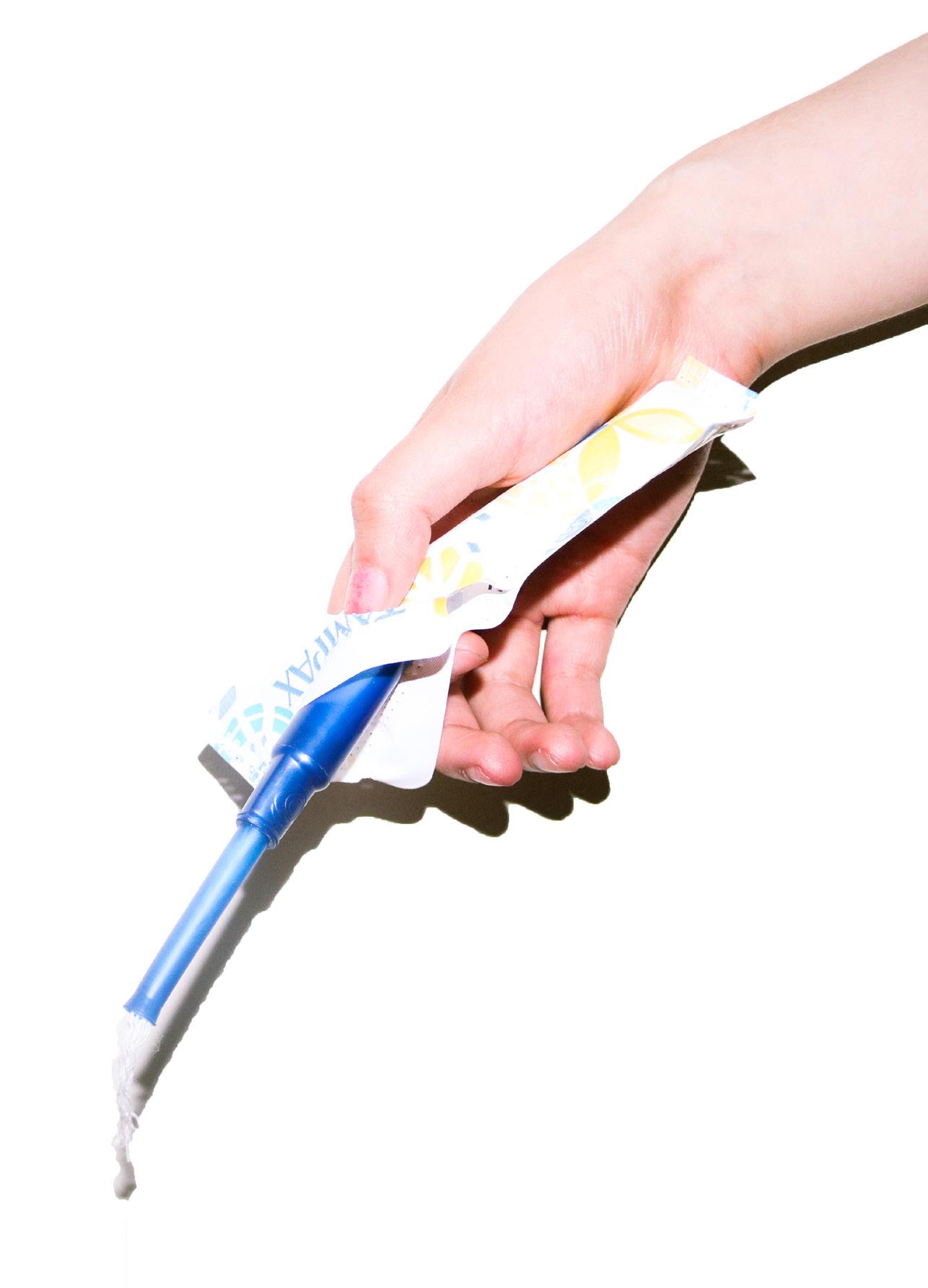
10 minute read
Can Friendships Overcome Politics?
Yes, Friendships can overcome politics
By: John Raspante Staff Writer
Advertisement
Politics have never been an important part of my life, and even though I have been able to vote for a few years now, I don’t identify with one party or another. When an election is coming up, I simply look at the candidates and what they stand for and choose my side based on whichever one I feel will be the best for the country and my family, regardless of their political background.
Due to how little focus I put towards politics in my own life, I don’t judge my friends based on their political standings. I judge them based on how they treat me, their friends, family and others. I am almost positive that some of my friends have similar political beliefs to me; and even though others may disagree completely with my judgments, that doesn’t matter to me. What these individuals believe in does not define them, no matter the circumstance. These friends of mine are still going to be my friends no matter what because I love and respect them for the people they are.
I have talked to one of my friends about this topic and she feels the exact same way as I do. One of my closest friends, University of St. Francis (USF) sophomore Jessica Scroppo, believes that “Friends can 100 percent have differing opinions on political beliefs, but they should always be able to respect those differences if that friendship is important to both of them.”
My friends and I really only talk politics when there’s a big election coming up like there is right now. When we do discuss the topic, it is always a very eye-opening experience for all of us. Being able to talk about politics, especially with friends or other people you care about, is a great thing because we really get to see what matters to the other person and what they believe will help benefit our society as a whole. Also, we’re able to see how these friends feel about specific controversial topics that are going on in the world and how they want problems to be resolved. By having these discussions, it allows us to see certain issues and problems from a different angle, while also giving a better overall understanding of these conflicts.
All in all, political beliefs should never have any effect on a friendship. True friends will care for and support one another no matter what they believe in or who they endorse. According to www.psychologytoday.com, if you can walk away from a political discussion where you settle on ways that you’re both right, you’ve not only saved your friendship, but you’ve also embodied what democracy stands for— the individual freedom of thought.
No, friendships cannot overcome politics
TW: Sexual Assault, Rape
By: Janelle Suriaga Editor-In-Chief
When it comes to deep and long-term friendships, politics do matter. Politics helps shape policy, which can disproportionately affect entire groups of people. As a Democrat, female, Asian-American and former immigrant, certain policies hit home. I am the person I am today because certain laws were in place that allowed me to prosper as a citizen. Political figures have the tendency to represent values and ideas that are behind the policy.
When then-candidate Donald Trump told an Access Hollywood camera crew about his nonconsensual endeavors with women, that he could “Grab ‘em by the pu***” because he was a star, I and many other females were disgusted. When we found out about the 43 allegations of sexual misconduct against women, some even young teenagers at the time, people started calling him a predator. Yet here he is today, the 45th president of the United States. Many people, some who are in my family and who I work with, actually voted for this man to be in power.

If you don’t think that figureheads and their “political personalities” don’t damage policies designed to help the vulnerable, you are sadly far from reality. The “Grab em’ by the pu***” president unsurprisingly makes it harder for survivors of sexual assault and rape on college campuses to come forward. According to the regulations released by the Department of Education this past summer, sexual misconduct is only ever to be considered in the court if the misconduct is “so severe, pervasive and objectively offensive” that it denies the victim access to the school’s education programs. These new rules from the Trump administration help the accused, reduce the legal liabilities for colleges, and decrease the scope of cases schools will be mandated to investigate, according to TIME. The already abysmal chances of a college sexual assault survivor getting justice against their perpretrator now seems impossible.
It seems wrong to make the assumption that people who belong to a certain political party will always support their leading political figures. But that is reality. 94 percent of Republicans continue to support Donald Trump, according to the most recent Gallup poll. Even when the country suffers from the pandemic and economic difficulties due to a virus that the President called a ‘hoax’, one political party still overwhelmingly approves of him.
I cannot be friends with a Trump supporter or a die-hard Republican, I really can’t. If you are a “friend” that voted for him, who supported his intentions to take away the rights of women and immigrants, then you are not cognizant of the harm you’re doing to a sizable part of the population by enabling people like him to be in power. And it takes a certain amount of privilege and ignorance to ignore politics when policies run our everyday lives.
Menstruation is Real (In Case You Didn't Know)

By: Elizabeth Badalamenti Staff Writer
The first time I learned about the glorious menstrual cycle was in the fifth grade. Our class was ceremoniously split into two groups based on our binary gender and led to separate classrooms to watch a VHS tape explain to us the wonders of puberty. While I can’t recall the exact content of this video, I distinctly remember the shock I felt while watching it. In my ten years of life, no one had ever mentioned that women regularly bleed out of their vaginas let alone experience intense cramping, headaches, nausea and dizziness as a result of it. In fact, most of the adult women in my life always seemed pretty healthy. Now, having experienced the “joys” of menstruation for several years myself, I understand why.
We live in a society that doesn’t believe in menstruation.
Ok, before you track me down in the hallway to show me a Wikipedia article on menstruation to prove me wrong, I will acknowledge that society does recognize the existence of periods. After all, packages of Tampax and Kotex products can be found in nearly every superstore (albeit stealthily tucked in the back corner). However, I think it is important to distinguish the difference here between recognizing and normalizing. For many women around the world, their menstrual cycle is an aspect of life that they must keep private, a concept that desperately needs to change. While periods may be far from an enchanting experience for women, that shouldn’t mean they need to create the illusion that they aren’t real. However, recreating the perception of menstruation within society is no simple task.
The first obstacle we face is changing the way we talk about feminine health. For many men— and even some women— it can be uncomfortable to talk about tampons, blood and vaginas. In a study conducted by the International Women’s Health Coalition, there are 5,000 euphemisms for “menstruation” across ten different languages. While phrases such as “Aunt Flo”, “shark week”, and “the Republican party” may be easier to say in a crowd, avoiding open discourse about menstruation is damaging for our society, especially for young girls as they try to understand their changing bodies. When senior Fernanda Sandoval got her period for the first time, she remembers feeling embarrassed to ask for help and thought older women would look down on her for asking for advice. Senior Miryam Perez was taught to hide her period from others, especially men, which caused her to feel as though menstruation was something to be ashamed of. However, in senior Clarissa Del Rio’s all-female household, “Talking about periods wasn't really an uncomfortable issue at all. Menstruation was simply seen as a natural thing like any other bodily function.” Consequently, Clarissa never really felt that uncomfortable talking about periods except around men.
Society must also overcome the obstacle of how menstruation is taught within our education system. According to the National Conference of State Legislatures, Illinois public schools are required to teach human growth and development and provide medically accurate information regarding sexual abstinence, although parents can opt their child out. However, when addressing these conversations, students are often split into separate groups based on their binary gender to watch different presentations. In doing this, students are kept ignorant to the realities of life. While a boy may never experience menstruation, it is still important for him to learn about it so that he can develop a better sense of empathy for women. Further, the conversations within these health classes often focus solely on the scientific aspects of menstruation and do not adequately prepare women for its realities. According to Perez, her high school health class spent just two days on reproductive health, with most of the conversation focusing on safe sex and STDs rather than menstruation, UTIs or proper feminine hygiene. Because schools failed to properly educate her and any mention of feminine health around her family was considered taboo, Perez was unaware of these topics until her late teens/early adulthood.
When asked what she wishes she knew sooner about periods, Clarissa stresses the value in learning how to regularly track menstrual cycles. “Nowadays,” she explains, “there are all sorts of ways to be on top of your cycle, such as using phone applications or calendars.” When asked the same question, Sandoval wishes she would have become more comfortable with the idea of periods sooner. As she explains, “You’re supposed to be comfortable with what comes out of your body, not grossed out by it. Feeling disgust towards your period makes managing your health way harder!” Perez would have liked to have learned about “the normalcy of menstruation” sooner in life. Had menstruation been a topic more openly discussed at home and school, she would have felt far less embarrassed to ask questions about her health.

At the end of the day, women understand that life cannot be put on hold one week out of every month. However, this doesn’t mean our culture can continue to lack empathy and understanding for this significant aspect of womanhood. While it will likely take several years to break down the stigma against menstruation, we can start with those in our households and social circles. Everyone can work to normalize conversations about menstruation and feminine health with their friends, children and siblings and work to create a safe space for them to ask questions and vocalize concerns. As women, avoid the temptation of stealthily slipping a tampon up your sleeve on the way to the bathroom or quickly creating an alternative excuse for not feeling well.
With enough luck, we might just be able to prove to the world once and for all that menstruation is real.
To help normalize menstruation, here are some period facts provided by Healthline:
Women in the U.S. spend over $2 billion dollars on menstrual products each year The average menstruating person uses almost 17,000 tampons or pads Only five states do not charge sales tax on menstrual products: Alaska, Delaware, Montana, New Hampshire, Oregon A 1974 study found that the less men are involved with childbirth and childrearing, the more likely they are to hold a negative perception of menstruation.










